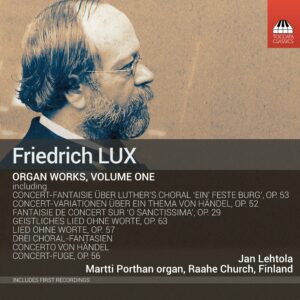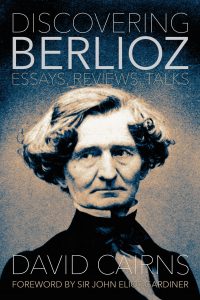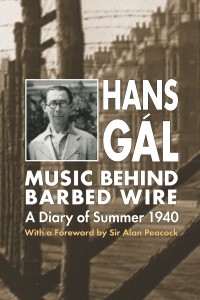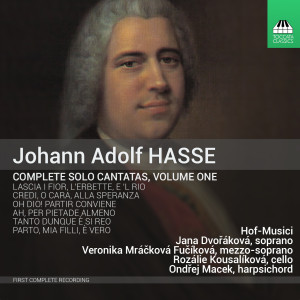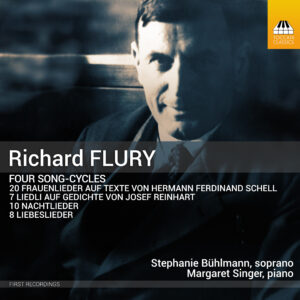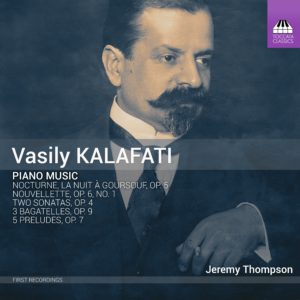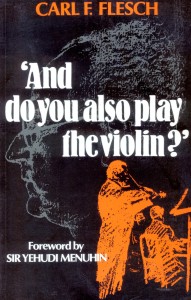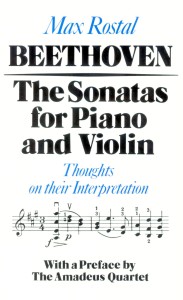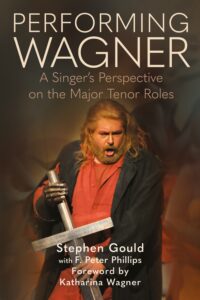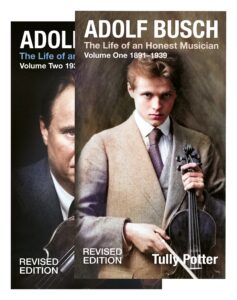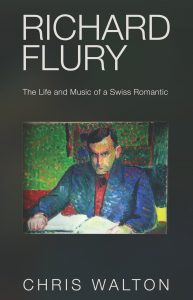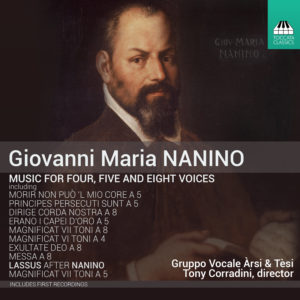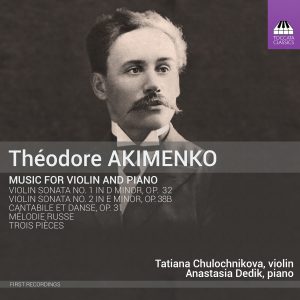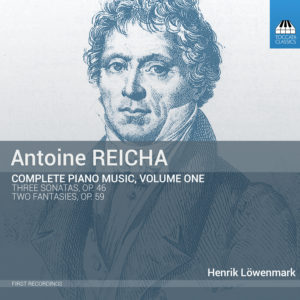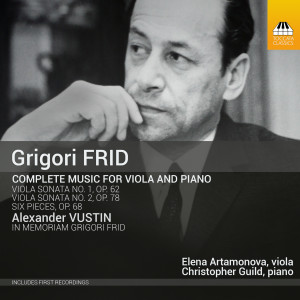Search Results for "obras de william makepeace thackeray" – Page 5
Showing results for operas william magpies teacher
Friedrich Lux: Complete Works for Organ, Volume One
Friedrich Lux (1820–95) was one of the breed of musicians who bound together musical life in nineteenth-century Germany: though he worked away from the major cities, as conductor, teacher, organist, organiser and composer, he was an indispensable element of the communities in which he worked. His large body of organ music, as good as unknown before now, brings together elements of the musical language of Bach, Mendelssohn and Schumann, in works that range from the intimate to the grandiose
Jan Lehtola, Martti Porthan organ, Raahe Church, Finland
Discovering Berlioz: Essays, Reviews, Talks
by David Cairns
Foreward by Sir John Eliot Gardiner
Extent: 400 pages
Size: royal octavo
Published: December 2019
ISSN 0264-6889
Musicians on Music, No. 12
Hans Gál: Music behind Barbed Wire: A Diary of Summer 1940
Translated by Eva Fox-Gál and Anthony Fox
English edition edited by Martin Anderson
Foreword by Sir Alan Peacock
Extant: 243
Composition: Royal octavo ~ Editorial Introduction ~ Eva Fox-Gál: ‘Hans Gál: A Biographical Introduction’ ~ Richard Dove: ‘”Most Regrettable and Deplorable Things have Happened”: Britain’s Internment of Enemy Aliens in 1940’ ~ Hans Gál: Music behind Barbed Wire ~ Eva Fox-Gál: ‘Gál in Britain’ ~ Appendices – One: Personalia; Two: CD Programme; Three: Martin Anderson: Hans Gál in Conversation; Four: The Hans Gál Society; Five: The Contributors ~ Bibliography ~ Index of Gál’s Works ~ General Index
Illustrations: c. 50
Johann Adolf HASSE: Complete Solo Cantatas, Volume One
In his own day Johann Adolf Hasse (1699–1783) was enormously popular as a writer of operas – Burney described him as ‘superior to all other lyric composers’. His chamber cantatas were written for private performance in the palaces of the powerful, where Hasse enjoyed the patronage of the very highest ranks of society: some of his cantatas may even have been sung by the empress Maria Theresa herself. But with the eclipse of his fame after his death, these works were scattered across Europe, and this first complete recording was made possible only by many years of detective work. They reveal, even on this smaller scale, the keen sense of drama that animated his operas.
Featuring:
Hof-Musici
Jana Dvořáková, soprano
Veronika Mráčková Fučíková, mezzo-soprano
Rozálie Kousalíková, Baroque cello
Ondřej Macek, harpsichord
Richard Flury: Four Song-Cycles
The output of Richard Flury (1896-1967), one of Switzerland’s most prolific composers, ranges from operas and ballets to symphonies, instrumental concertos, sacred and secular vocal works, chamber music and no fewer than 181 songs with piano accompaniment. These four song-cycles, written between 1920 and 1946, contain 45 of them, their concision nonetheless embracing an expansive, Romantic style of which Schumann himself might have approved. The prevailing mood is one of an open-hearted sincerity, occasionally enlivened by a dash of humour.
Stephanie Bühlmann, soprano
Margaret Singer, piano
Vasily Kalafati: Piano Music
The name of Vasily Pavlovich Kalafati (1869–1942), born to Greek parents in the Crimea, has a toe-hold in the history books as one of Stravinsky’s teachers, but he was an accomplished composer in his own right. The early piano works recorded here show the influence of Rimsky Korsakov (his teacher and friend) and other Russian-nationalist composers, but they also owe something to the examples of Chopin and Brahms, not least in their blend of passion and textural clarity. The vigour of these pieces stands in stark contrast to the ultimate fate of their composer: he starved to death during the Siege of Leningrad.
Jeremy Thompson, piano
‘And do you also play the violin?’
Foreword by Sir Yehudi Menuhin
Extant: 382
Composition: Demy octavo ~ Profusely illustrated with facsimiles and photographs ~ Index
Beethoven: The Sonatas for Piano and Violin: Thoughts on their Interpretation
With a Preface by The Amadeus Quartet, a Postscript by Günter Ludwig, and an Appendix by Paul Rolland Translated by Horace and Anna Rosenberg
Extent: 219 pages
Composition: Demy octavo ~ Illustrated ~ Bibliography ~ Index
Performing Wagner
USE CODE BB110 at Boydell & Brewer to save £35!
A Singer’s Perspective on the Major Tenor Roles
by Stephen Gould and F. Peter Phillips
Foreword – Katharina Wagner
Introduction – F. Peter Phillips
154 Pages
Hardcover
23.4 x 15.6 cm
25 colour and 22 b/w illustrations
Adolf Busch: The Life of an Honest Musician – Two Volume Revised Edition Set
Volume 1: 1891–1939
Volume 2: 1939–1952; Appendices 1–12
Includes two CDs: Busch the Performer; Busch the Composer
Extent: 1432 pages
Composition: Royal octavo, 2 vols of 702 & 730 pp.
255 b/w illus.
Richard Flury: The Life and Music of a Swiss Romantic
Author: Chris Walton
Extent: 328 pages
Size: 16 x 24 cm
Published: March 2017
Illustrations: 22 colour illustrations; 51 b/w illustrations
Hans Gál In Conversation
This conversation, first published in the Journal of the British Music Society (Vol. 9, 1987, pp. 33–44), was recorded at Dr Gál’s Edinburgh home in…
Giovanni Maria Nanino: Music for Four, Five and Eight Voices
Giovanni Maria Nanino (1544–1607) was one of the major Italian composers of late-Renaissance polyphony. A successor of Palestrina as maestro di cappella at Santa Maria Maggiore in Rome, Nanino produced a modest but expertly crafted body of sacred music, and his madrigals, too, enjoyed widespread popularity. He also became the most influential teacher of composition in late-sixteenth-century Rome. But despite the prestige he enjoyed in his own day, his music has been almost entirely forgotten. This recording – the first to be dedicated to his music – reveals it to have struck a remarkable balance between beauty, passion and dignity, between darkness and light.
Gruppo Vocale Àrsi & Tèsi
Tony Corradini, director
Théodore Akimenko: Music for Violin and Piano
The Ukrainian Fyodor Akimenko (a.k.a. Fedir Yakymenko, 1876–1945) was born in Kharkiv, studied in St Petersburg with Balakirev, Lyapunov and Rimsky-Korsakov and was Stravinsky’s first teacher. Akimenko’s music has much in common with that of Glazunov and Grechaninov and, like them, in 1923 he chose exile over a prominent teaching career in St Petersburg, finally settling in France in 1929, where he became Théodore and continued his generous output of lyrical, Romantic music.
Tatiana Chulochnikova, violin
Anastasia Dedik, piano
Antoine Reicha: Complete Piano Music, Volume One
For two hundred years the piano music of the Czech-born composer Antoine Reicha (1770–1836) – friend of Haydn and Beethoven, teacher of Berlioz, Liszt and Franck – has been buried treasure. Reicha was an important influence on composers of the next generation (indeed, Berlioz was happy to lift a few ideas from him) but apart from an innovative set of fugues his piano works have remained unknown since his own day. Both encompassing Baroque practices and looking forward to the twentieth century, they are full of harmonic and other surprises that show this liveliest of musical minds at work.
Henrik Löwenmark, piano
Grigori Frid: Complete Music for Viola and Piano
The Russian composer Grigori Frid (1915–2012), whose long life encompassed the entire existence of the Soviet Union, is best known for his 1969 chamber opera The Diary of Anne Frank. His sizable output, which has yet to be properly explored, includes three major works for viola and piano, their dignified restraint and emotional honesty taking the late works of Shostakovich as their stylistic starting point. They are followed by In Memoriam Grigori Frid, a touching tribute by Alexander Vustin (b. 1943) to his former teacher.
Elena Artamonova, viola
Christopher Guild, piano
Stay In the Know
JOIN THE TOCCATA NEWSLETTER
"*" indicates required fields
By visiting our site, you agree to our privacy policy regarding cookies, tracking statistics, etc.
